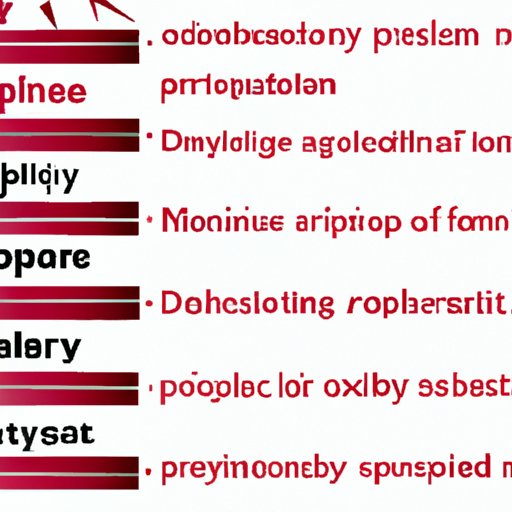Introduction
Dystopian literature has become increasingly popular in recent years, with works such as The Hunger Games, Divergent, and 1984 captivating readers around the world. But what exactly is dystopian literature? To answer this question, it’s important to first understand the definition of the genre and explore its various characteristics, themes, and implications.

Identifying Dystopian Literature: A Definition
At its core, dystopian literature is a type of speculative fiction that explores a society in which an oppressive system controls the lives of individuals. This system can be political, economic, social, or environmental in nature, and it often restricts the freedom of citizens. Dystopian literature typically presents a bleak view of the future and serves as a warning to readers about how unchecked power can lead to oppression and suffering.
The following are some of the main characteristics of dystopian literature:
- Presents a dark view of the future
- Explores a society where an oppressive system controls individuals
- Depicts characters struggling against the oppressive system
- Raises moral questions about the choices individuals make in situations of extreme oppression
Examples of well-known dystopian literature include George Orwell’s 1984, Aldous Huxley’s Brave New World, Suzanne Collins’ The Hunger Games, and Margaret Atwood’s The Handmaid’s Tale. While these works vary in terms of setting and plot, they all share common themes and social implications.
What is Dystopian Literature? Exploring Its Definition
One of the primary themes of dystopian literature is the struggle between the individual and the state. In most dystopian works, characters must choose between living according to the laws of the oppressive system or risking their lives to fight against it. This choice often raises difficult moral questions for readers, as characters must decide whether to uphold the law or act on their own convictions.
In addition, dystopian literature often explores the consequences of unchecked power and explores the potential dangers of technology and scientific advances. These works often present a bleak vision of the future and challenge readers to consider the potential risks of allowing government or corporate entities to have too much control over people’s lives.

An Introduction to Dystopian Literature: Defining the Genre
The genre of dystopian literature has a long history, stretching back to the early 20th century. Early works such as Yevgeny Zamyatin’s We and Aldous Huxley’s Brave New World explored the possibilities of an oppressive future and raised important questions about the role of government in controlling individuals’ lives. These works continue to influence modern authors, who draw on them as they create their own dystopian worlds.
The popularity of dystopian literature has grown in recent years, as readers have been drawn to stories of rebellion and survival in a hostile world. This increased interest has led to the emergence of new authors and new works, many of which explore the same themes as their predecessors. As the genre continues to evolve, it remains an important source of entertainment and social commentary.
Uncovering the Definition of Dystopian Literature
When exploring the definition of dystopian literature, it’s important to look at the various literary elements that define the genre. These elements include complex characters, intricate plots, and vivid settings that help to create a believable world. Additionally, dystopian literature often uses symbolism and metaphor to convey its message, making it a powerful tool for exploring difficult moral and social issues.
Dystopian literature also poses important moral questions for readers. By exploring the consequences of oppressive systems and challenging readers to consider the choices they would make in similar situations, these works encourage readers to think critically about the world around them.

Exploring Dystopian Literature: An Overview and Definition
In order to gain a better understanding of dystopian literature, it’s important to analyze the genre from both a literary and a social perspective. By looking at the themes, characters, and settings of these works, readers can gain insight into the implications of oppressive systems and the effects they have on individuals.
In addition, it’s important to consider the impact of dystopian literature on readers. By exploring the moral questions posed by these works, readers can gain a deeper understanding of the human condition and the challenges faced by those living under oppressive systems.
Conclusion
Dystopian literature is a genre of speculative fiction that explores a society in which an oppressive system controls the lives of individuals. Characterized by complex characters, intricate plots, and vivid settings, dystopian literature often raises difficult moral questions and challenges readers to consider the consequences of unchecked power. By exploring the genre’s definition and analyzing its themes, readers can gain insight into the implications of oppressive systems and the effects they have on individuals.
(Note: Is this article not meeting your expectations? Do you have knowledge or insights to share? Unlock new opportunities and expand your reach by joining our authors team. Click Registration to join us and share your expertise with our readers.)
